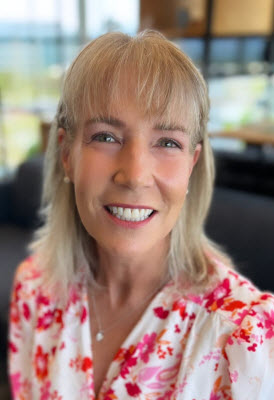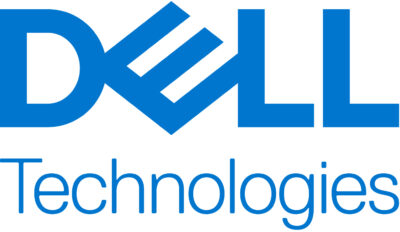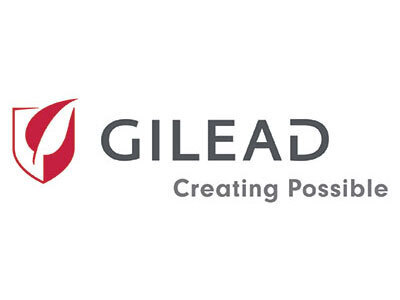Spotlight Member Sharon Grehan
Sharon Grehan, PhD serves as the Global Lead for the Women at Gilead ERG. Sharon drives global strategy and provides actionable counsel and support to >7,200 employees, with significant impact to the business and employees. She also serves as a strategic partner to relevant industry groups, diversity organizations, and associations, such as FairyGodBoss, HBA, California Women’s Conference, etc.
A strong leader with high levels of team motivation, engagement, performance and empowerment, she has mentored hundreds of employees and is a role model for authentic leadership.
Before joining Gilead, Sharon conducted postdoctoral research at the Gladstone Institutes and became partner in a local strategic consulting company. Sharon has an MSc in Biotechnology from NUI Galway and a PhD in Molecular Biology from Trinity College, Dublin, Ireland. She has authored 12 peer reviewed manuscripts in various fields of research, has presented on leadership topics at numerous conferences including the Galvanize, HBA 3BC executive, California Conference for Women and Romar Learning Solutions conferences and holds board and executive positions with BioLink, Zensights Executive Network, Romar Learning Solutions, INBA and FGB.
What is your definition of a Woman of Inspiration?
When I think about “women of inspiration”, I don’t think of famous women or historical figures, I think of the women with an infectious positivity who inspire others be authentic in both their professional and personal lives by role modeling these qualities. Women of inspiration genuinely care about others, make them feel valued and give them the confidence, motivation and support to overcome challenges. They approach changing the world through inspiring one person after another.
Everyone woman has a story. Why did you start your business or choose your career path?
Growing up in a rural area of Ireland where women, at that time, were not encouraged to pursue advanced education, I dreamed of becoming a scientist with a global impact. My parents were my earliest advocates and I went on to achieve academic success, culminating in a PhD (first female from my village to achieve this level of education) and a successful research career. I moved to the US in 1997 to continue my academic research career and after being offered tenure track, realized I could have an even greater impact in industry. I joined Gilead Sciences in 2008 and led departments of increasing size and scope.
In April 2021, I was tapped by our Chief Commercial Officer for the role of a lifetime – leading ~7,200 global members of Women at Gilead. In my first year in role, I transformed the strategy resulting in significant advances in opportunities and experiences for women at all levels, drove implementation of enhanced benefits and flexibility for all employees and drove an increased sense of belonging for our employees.
I have taken my leadership success with Women at Gilead and applied it to help other employee resources groups including those for our Black, Hispanic, Asian, Veteran and LGBTQ+ employees and for our administrative professionals community, who are often overlooked for development opportunities.
When you were growing up, who were the female role models you look up to?
Growing up, I didn’t have any famous role models that I looked up to. I was lucky enough to be surrounded by more love than any one person could ever imagine. My Mum worked full time as a district health nurse while raising four children and made it seem easy. I was the first Grandchild and first niece on my Mum’s side, and my Grandmother and Aunt surrounded me with support and love. My Mum also had friends who treated me like their daughter. As a young girl, I looked to all of them for cues about how to think and act. Some of their commonalities involved confidence, compassion, kindness, authenticity, caring for others, celebrating the accomplishments of others and a wicked sense of humor. They continually encouraged me both academically and personally to be the best version of myself and their belief in me, even after some had passed away, carried me through times that I did not believe in myself. They taught me to see failure as a first attempt and to be proud of who I am as a person.
What is the best advice you were ever given?
“Don’t apologize if you haven’t done anything wrong”. Apologizing when you have done something wrong is a real strength but apologizing out of habit/conditioning can undermine your authority. For example, there is a real difference in how you are perceived when you say “I’m sorry but I will need to leave this meeting 10 mins early” vs. “I have a conflict and will need to leave this meeting 10 mins early”. Not only does this change how others perceive you but it puts you in a different frame of mind for how you are prioritizing your time.
What is the worst advice you were even given?
“Don’t show your emotions at work - ever.” As a result, I spent too much time and energy earlier in my career trying not to ‘feel’ at work instead of learning how to channel those feelings in productive ways. I have since realized that authentic leadership involves being just that – and we cannot separate ourselves from our emotions.
Emotions, particularly negative emotions, can be distracting at best and be debilitating at worst. I find it critical to be honest with myself and my team members about my feelings. Faking positive emotions will not work long term and can result in distrust - leading to disastrous consequences. Similarly, ignoring team anxiety/concern about upcoming changes, for example, and leading through the change without acknowledging the likely emotions everyone is feeling, can lead to further upset. By acknowledging the elephant in the room and allowing myself and others to express emotions, has resulted in stronger team alignment and positivity as everyone feels more supported and less alone.
Last, by not least, when I have a difficult personal situation, I am open and honest with my team, even if I don’t give all of the details. Showing vulnerability creates trust and a safe space for others to do the same. Emotionally intelligent executive teams have a competitive advantage as they create a more productive, supportive and energizing work environment for all.
This is the decade for women to drive change. Why is now so important to empower women to be seen, heard and valued?
I see the advancement of women as a global imperative. I believe I have a responsibility to empower women to embrace opportunities beyond the limits of their imagination and to do so while being their authentic selves. I lead by example and show that EQ is just as critical as IQ to bring out the best in others. The world needs inspirational female leaders, now more than ever.
Many women are intimidated by women in power – this fear is often reinforced by the myth that there isn’t enough room for all women to thrive at work. That’s where welcoming opportunities to help and pay it forward can make a world of difference. I am in a position that is focused on the advancement of opportunities and experiences for women at all levels at Gilead and feel strongly about helping to shape the next generation of leaders. I believe that mentoring is the most powerful way to pay it forward to help other women succeed. This can be through formal mentoring programs or by connecting with women who can tap into your experience, advice and connections to help them progress professionally.
I continuously seek ways to support the advancement of women and encourage them to raise their hand and step up when an opportunity presents itself. I create a safe space for authentic relationship building and encourage women to network and form new relationships that allow them to feel more confident in their roles, motivate them to take on new opportunities and provide them with increased exposure to other leaders – all of which will ultimately help their career progression.
Your win is our win. What achievement are you most proud of?
Growing up in a rural area of Ireland where women, at that time, were not encouraged to pursue advanced education, I dreamed of becoming a scientist with a global impact. My parents were my earliest advocates and I went on to achieve academic success, culminating in a PhD (first female from my village to achieve this level of education) and a successful research career. I have since inspired many others from my area to pursue higher level education.
What would you like to achieve in the next five years?
I am currently on a journey to become certified as an Executive Coach and would like to start a non-profit to help, mentor and coach underprivileged women to embrace opportunities beyond the limits of their imagination. In the words of Winston Churchill: “We make a living by what we get. We make a life by what we give.”
A daily non-negotiable for me is....
I have multiple daily non-negotiables that help me to lead a successful, productive, healthy and happy life. If I miss any of these, I experience a negative shift in how I feel, which helps to maintain them as non-negotiables. Some of these include time for exercise, connecting with family and friends (even if via phone during commute time) and prioritizing sleep. I don’t always get it right but when I do, I can face anything!
I cannot live without my....
Passion projects. I’m a better leader, a better mom, and a better person because I’ve incorporated passion projects into my life. Some of my passions have evolved over time. Thanks to COVID, I’ve gotten a chance to slow down and prioritize what I spend time on - we’re all busy, so something really needs to spark joy if it gets added to our days.
Outside of work, I love to....
Read, play pool, spend time with family and friends, go wine tasting and snowboard – just not all at the same time!
My power song is.....
“Girl On Fire” — Alicia Keys




